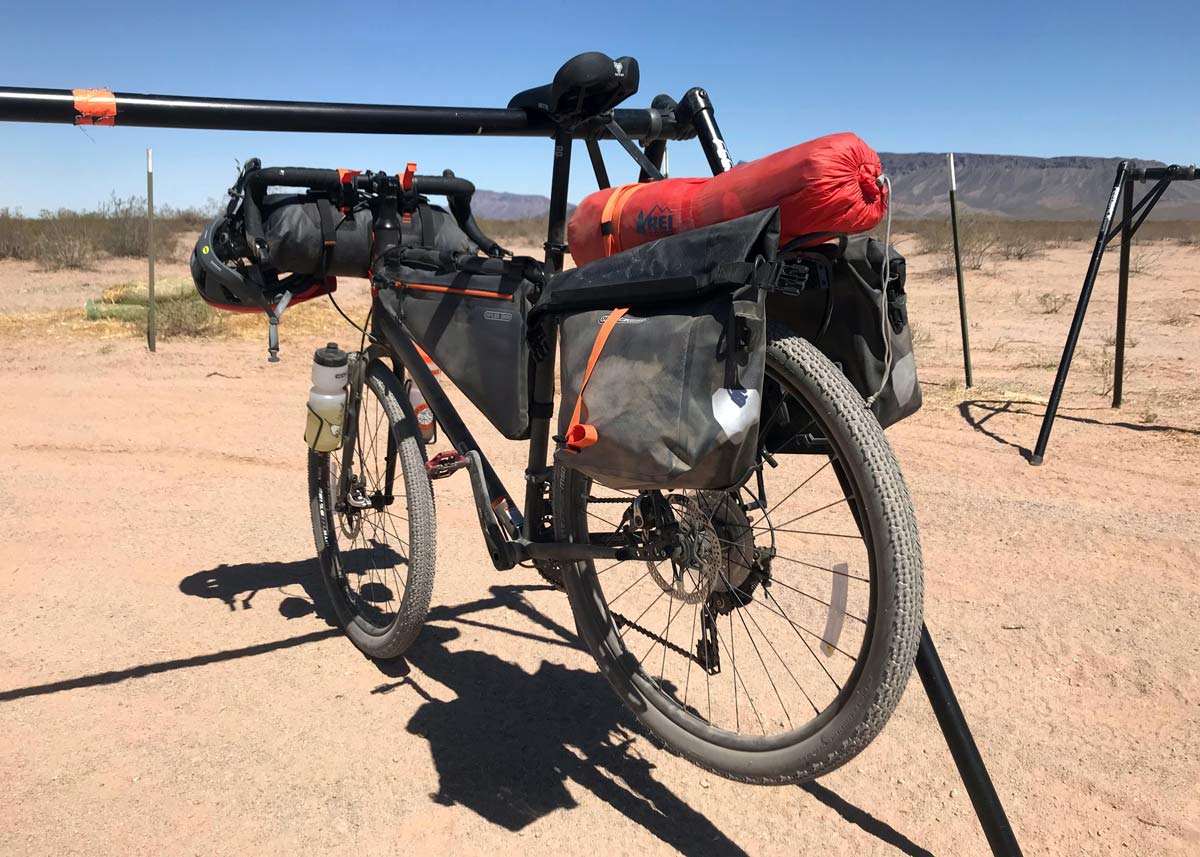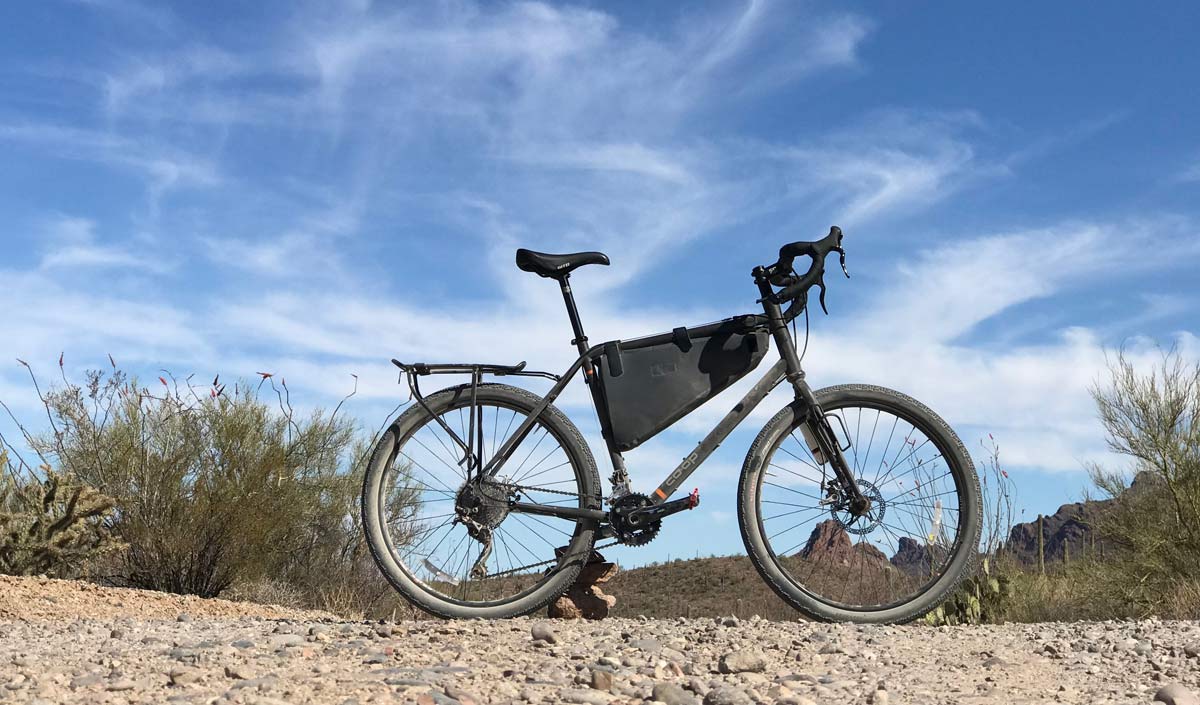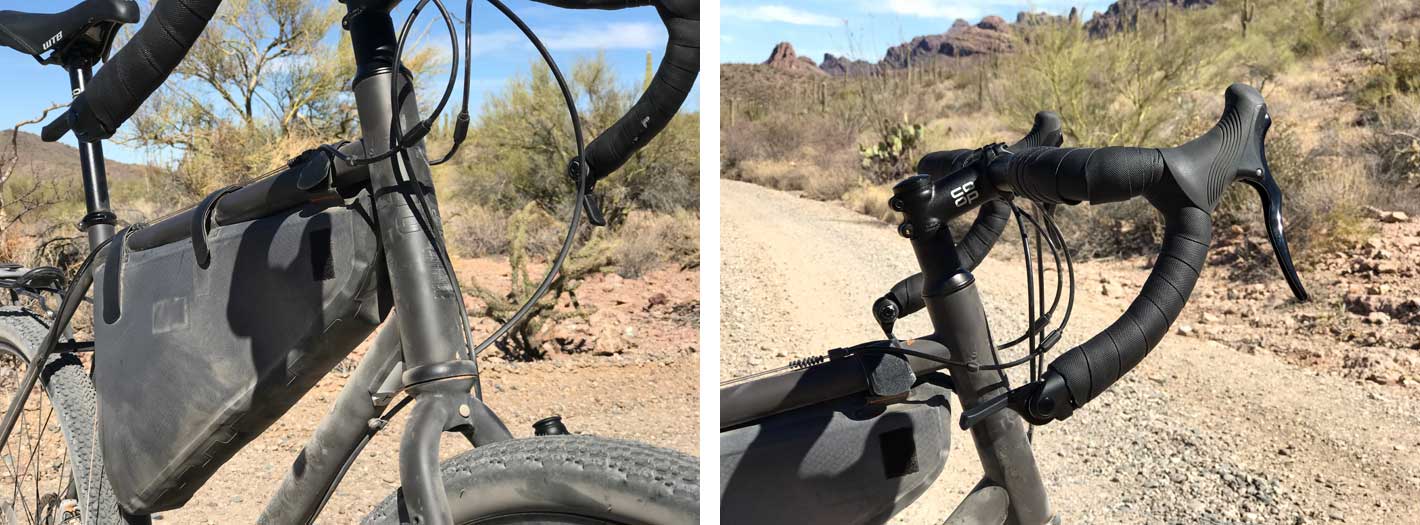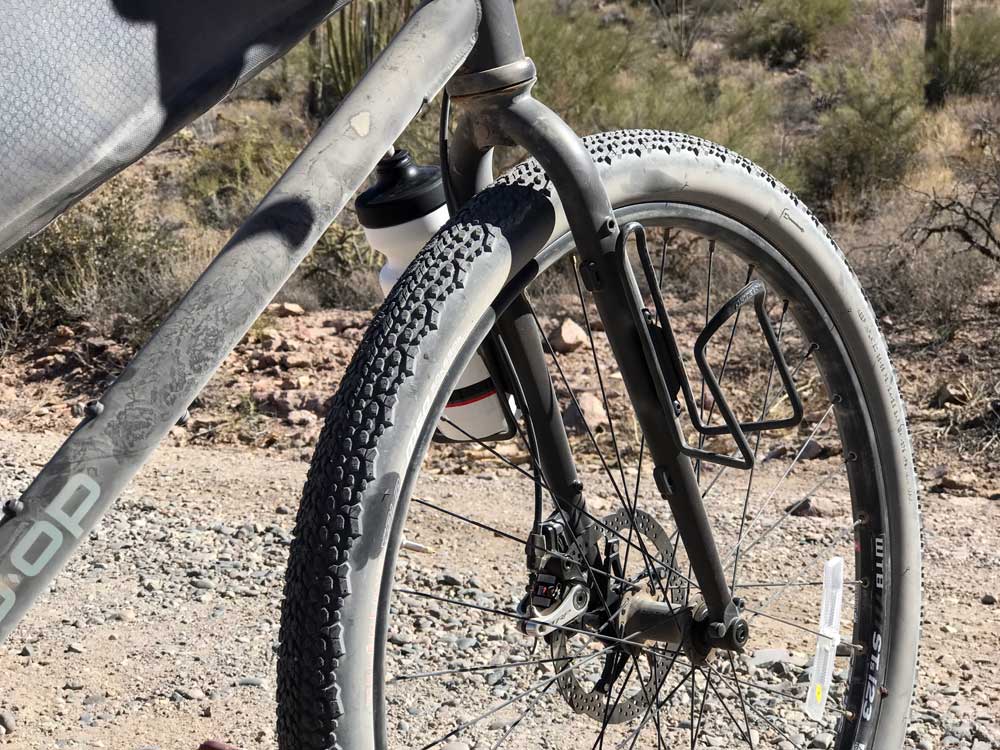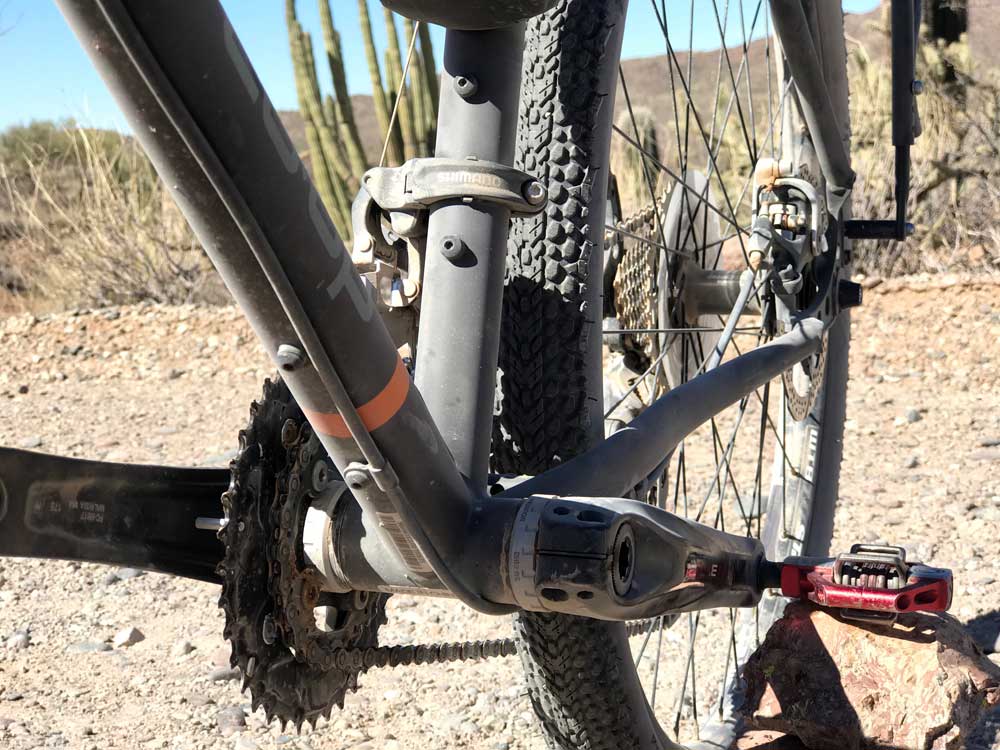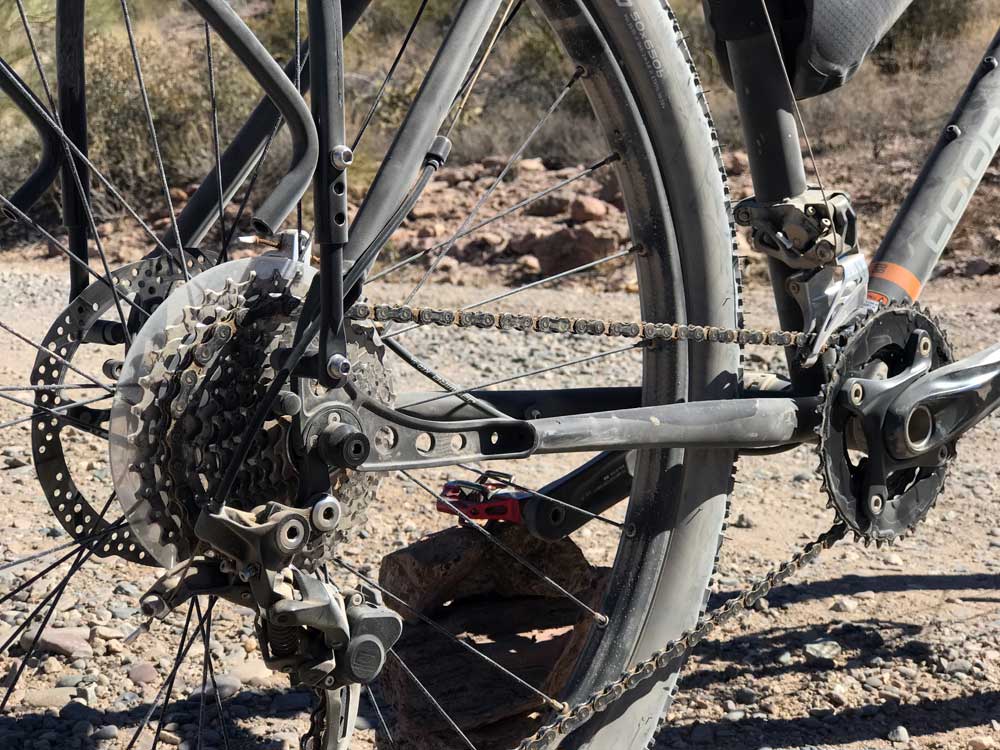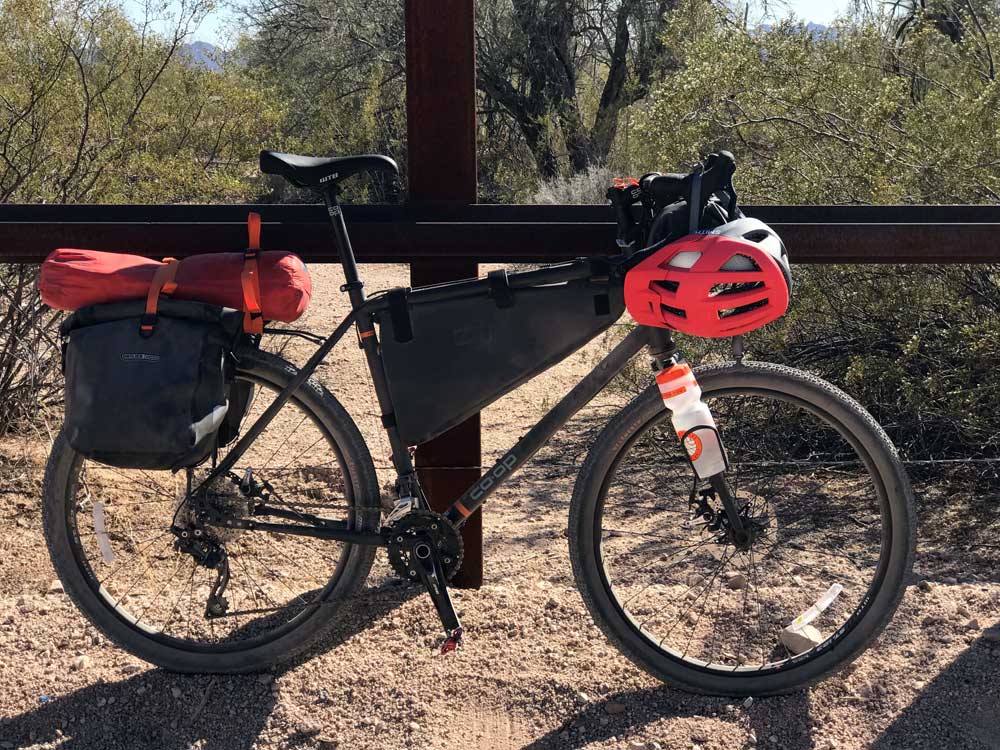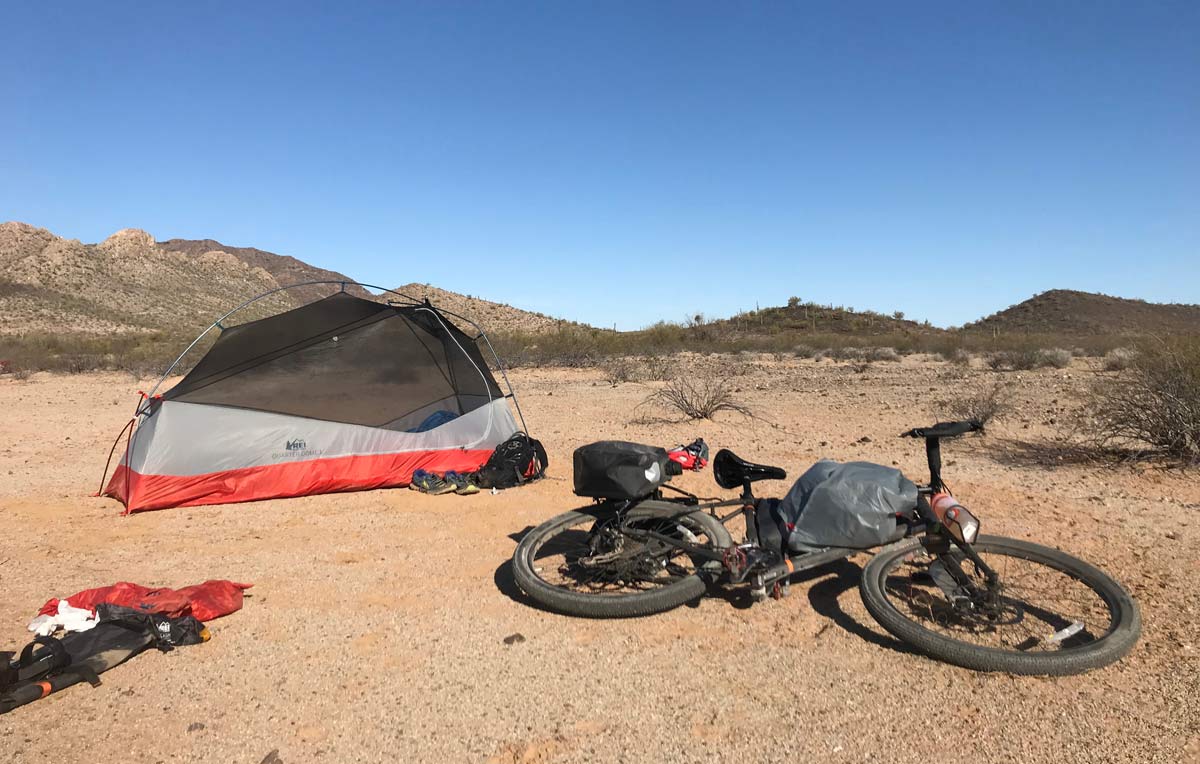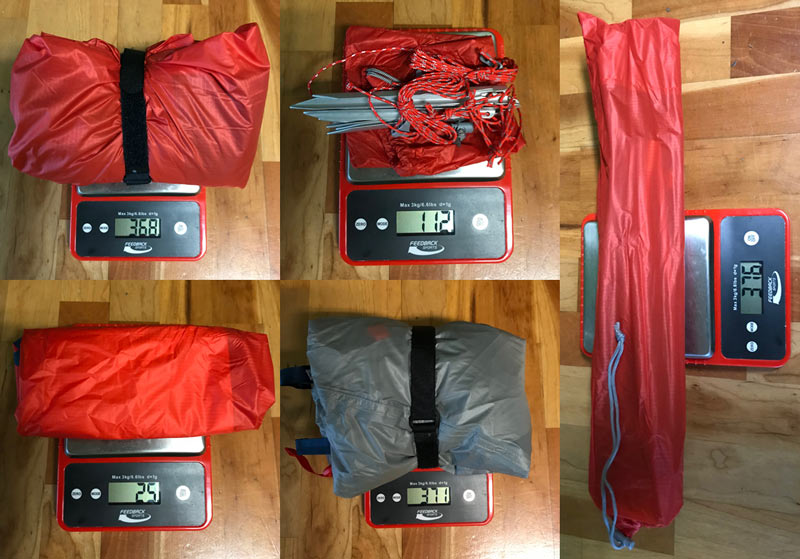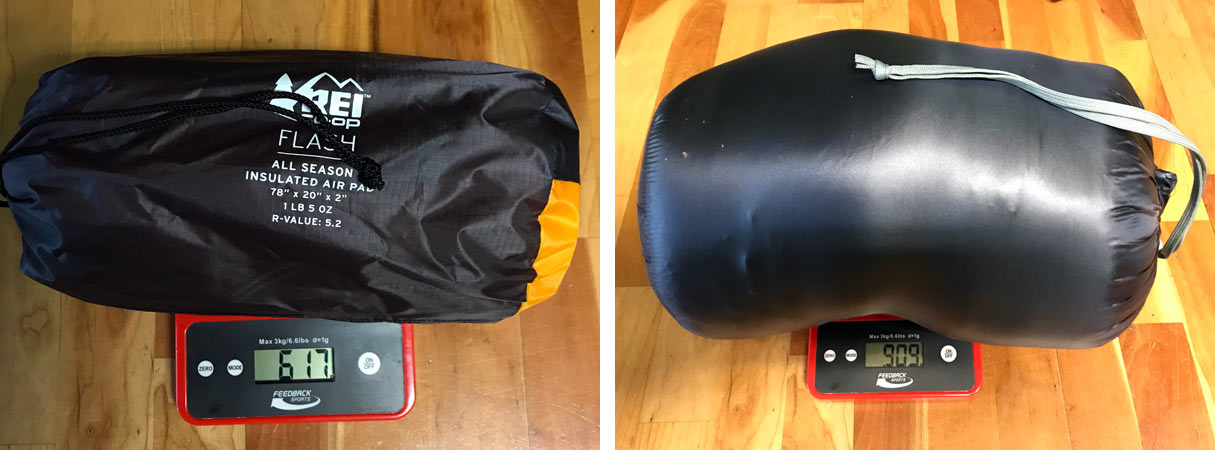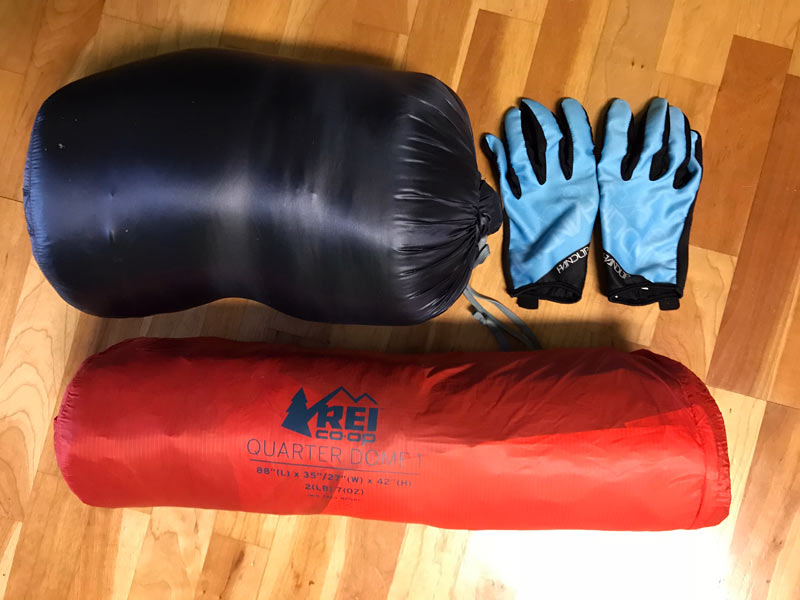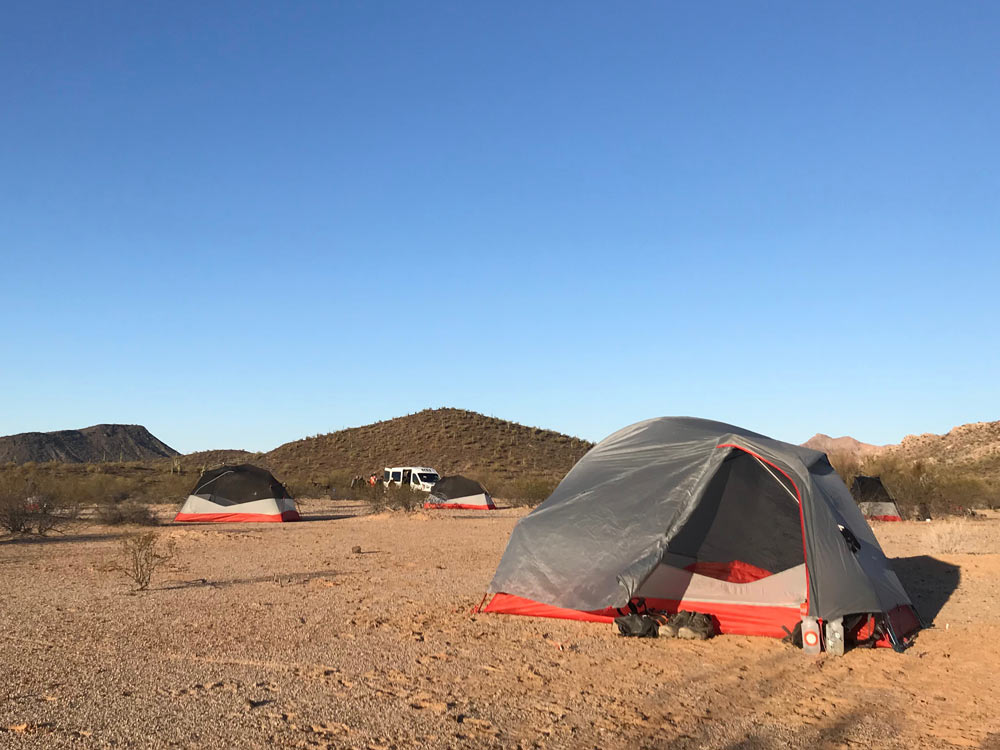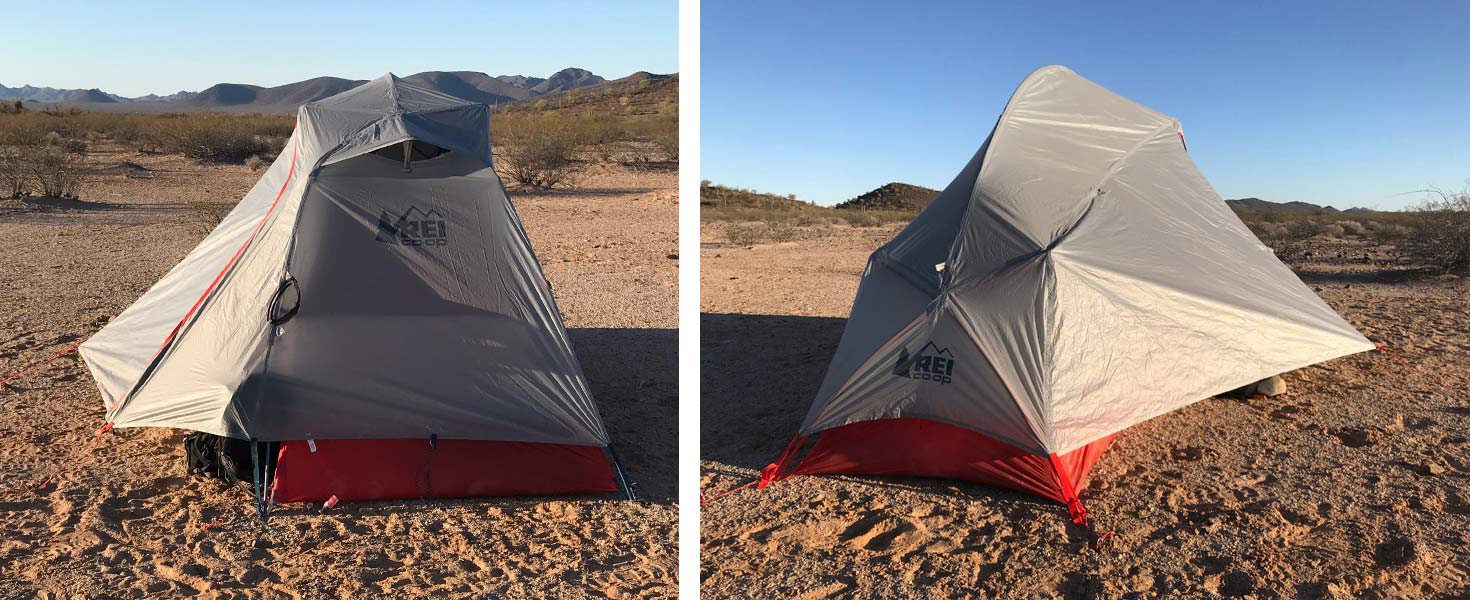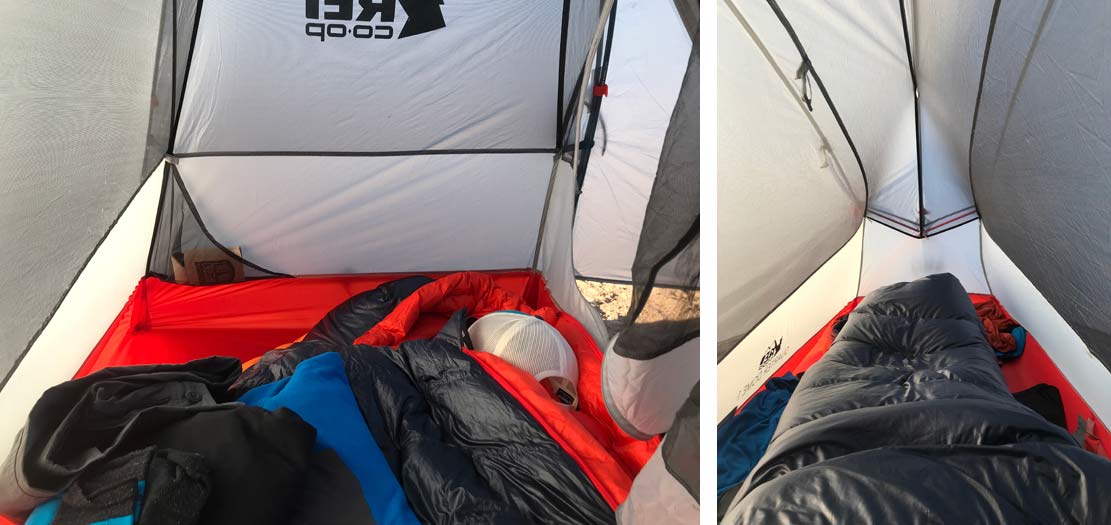Earlier this year, REI invited us to test out their Co-op Cycles ADV 3.1 650B drop bar adventure bike in the BLM deserts outside of Ajo, Arizona. To really test it out, we were loaded up with some of their lightweight tents, camping pads and sleeping bags, too. Combined with frame and pannier bags, racks and other accessories they provided to test, it was a complete bikepacking outfit. Which was a good thing, because after one night at the quaint, family-owned Sonoran Desert Inn, we were camping in the wild for the next two nights…
The Co-op ADV 3.1 ($1,199) is the base version of their drop bar adventure bike. It comes with a chromoly steel frame and fork with a claimed complete bike weight of 27.4lb. The cockpit is REI Co-op brand with a flared alloy handlebar. It uses Microshift bar-end shifters to control a full Shimano Deore 2×10 group, including hubs, with WTB saddle and rims, TRP Spyre mechanical disc brakes, and Donnelly X’Plor MSO 650×50 gravel tires.
Above it sits the ADV 3.2 ($1,699) with a lighter 6061 alloy frame, which along with better spec brings the complete bike weight down to a claimed 25.5lb. That’s with a mostly XT Shimano 2×10 group managed with MicroSHIFT bar-end shifters. The same Co-op cockpit carries over here, with the same well-padded WTB saddle on top. The 3.2’s wheels use the same rims and tires, but with different Shimano hubs. Brakes are TRP Hylex hydraulic disc brakes.
For the price, both bikes are a decent package that’s ready for your adventure build out.
The fork is chromoly, too, and the bike comes in a semi-matte gray/army green hue. The headtube is tall, which combines with a steep seat tube angle and shorter reach to put you in a commandingly upright position. I liked this position for the type of riding we were doing. The short drop, flared handlebars were perfect and provided a wide perch for cruising and easy, comfortable reach for when it was time to get low and go fast.
The high volume tires offered great traction and compliance. We didn’t want to run them too low, because pinch flats are a total PITA out in the middle of nowhere, but they still offered great comfort and performance.
The frame and fork have mounts for front accessory cages, racks and extra bottle cages. There are no frame bag or Bento box mounting points, so you’ll have to use strapped bags inside the front triangle. But, the cables run on the top side of the top tube and have enough space underneath to easily clear such straps. The bags we used for our trip were from Ortlieb, and they had a complete selection for us to test. I used two pannier bags, a frame bag and a handlebar roll bag and they all worked great. The bottle cages and rear rack were by Blackburn Designs. I also wore a small Camelbak to keep my water cooler and immediately accessible.
The bike does get thru axles, but everything else is very much standard and old school. Which means it’s easy to find a replacement virtually anywhere you go. Or to just fix it. Full length brake housing keeps it working well regardless of the weather and muck.
While it looks basic and the geometry is tall, I was able to put my head down and hammer over the dirt roads. That was great for catching up to the group after a late start, and for sweating out the tequila demons that caused my late start.
The Shimano cranks, front derailleur and clutched rear derailleur provide an affordable, reliable 2×10 drivetrain. Front gearing is 38/24, and the cassette is 11-36. (The alloy ADV 3.2 bike gets a 40/28 front gear combo)
Packed out for a couple of nights, this is what it looks like. REI was bringing the food along in a van, so we could ride lighter than if fully self supported. I put a jacket and snacks in the panniers, but they were very empty…I could have probably put enough food to survive in them, but extra water would have had to have gone somewhere else. My sleeping bag was in the handlebar roll, and I crammed the inflatable camping pad into the tent’s case to save space and make it fit perfectly on the top of the rack.
Over the course of 2-1/2 days of riding, no one had any mechanicals. My bike performed flawlessly and ended the ride feeling just as solid as when we started. It’s available in 5 sizes (XS to XL, XL tested here). I’d recommend it to anyone looking for a bike that’ll pull daily errand duty and handle multi-day touring and bikepacking. Check out the full specs and geometry on REI’s website.
REI Quarterdome 1 and Flash Sleep Pad Review
For gear, we were using the REI Quarterdome 1 ($279), Flash All Season insulated air pad ($129-$149), and the Co-op Magma 10 sleeping bag ($349-$369). All of it sets up super quick and easy, in about 26 seconds of stop-motion time:
Of utmost importance for bikepacking (and backpacking) is weight, and the Quarterdome 1 comes in at a combined total weight of 1,252g (2.76lb). Not bad, and you don’t need all of it if the weather will be nice. Clockwise from top left, individual weights are:
- Tent body: 368g (0.81lb)
- Stakes, strings and pouch: 112g (0.25lb)
- Poles and pouch: 376g (0.83lb)
- Rainfly: 371g (0.82lb)*
- Tent sleeve: 25g (0.06lb)
At a minimum, you’ll need the tent body and the poles, which adds up to 744g (1.64lb). The tent’s footprint is available separately for about $40, but with it you can just take the rainfly, pole and footprint to create a tent-free shelter that’s overall lighter.
*The rainfly does not include that strap, so would actually be slightly lighter. I had to use it to keep it contained on the scale.
The Flash air pad used here is the Long size, which measures 78″ x 20″ x 2″, and comes in at 617g (1.36lb). The sleeping bag is 909g (2.00lb). Not the lightest items on the market, but also not bad, and their comfort made it worth a few extra ounces. The Flash all-season pad uses a heat-reflective layer inside it to provide some insulation against cold, and it inflates in about a minute using nothing but your breath…impressively quick. It’s also very comfortable. The claimed thickness is 2″, but it feels like more than that. If I could order again, I’d go for the Long/Wide version, which stretches to 25″ wide. They also have a 72″ long Regular and Regular/Wide.
The nice thing about these items is you can compress them quite a bit. The air pad rolls up very tight and can actually fit inside the tent’s sleeve with the tent and poles in there, putting it all in one condensed package. I was able to mash the sleeping bag into the handlebar roll bag and then squeeze that down narrow enough that my brake reach and hand positions were unencumbered.
The rainfly has room to cover your shoes and other dirty stuff you don’t want to bring into the tent. It also vents above your head, and stops short to allow air flow from underneath. The lower part of the tent is water resistant.
The Quarterdome 1 is a single-person tent, and multi-person sizes are available, too. Almost the whole upper 2/3 is mesh, allowing lots of breathability and visibility. The pole structure creates nearly vertical walls, which gave me plenty of room to sit up, change clothes and move around.
Inside is just enough room to lay down, put a few things beside you and some extra clothes beyond your feet. I’m 6’2″ and used most of the available space.
Since this trip, my kids have used this tent on numerous occasions, indoors and out. My 13-year-old son set it up on his own without looking at any instructions, and my 10-year-old daughter sometimes hosts a sleepover with a friend inside it. It’s been rained on, put away improperly and generally (if gently) abused, and it’s still good as new.
Like the bike, I’d recommend this setup for anyone seeking solo refuge on their next bikepacking or hiking adventure. Hit the links throughout the article to check out each product page on REI’s website.
